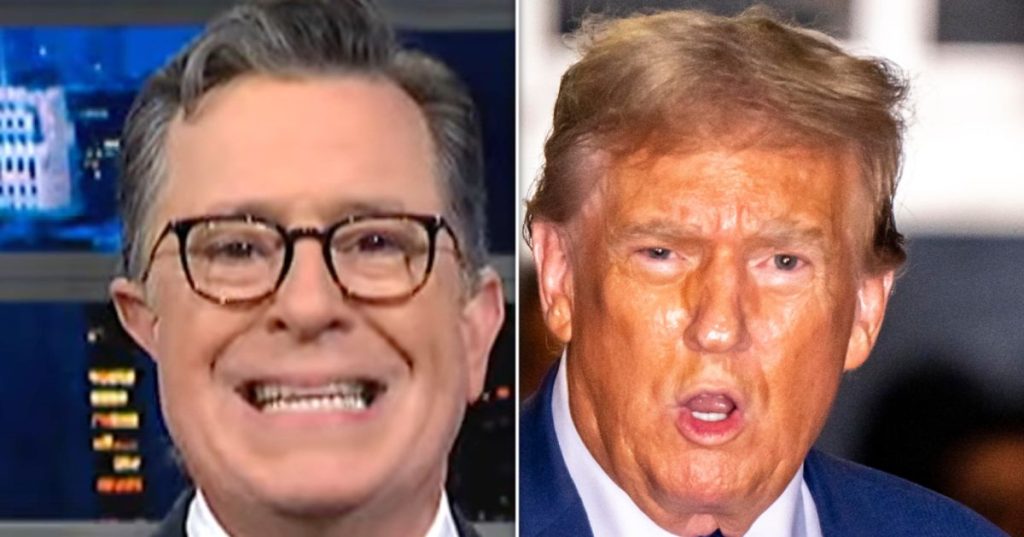Stephen Colbert on Thursday took aim at Donald Trump and his aide Natalie Harp, who has been given the nickname “human printer” for her role in boosting the former president’s spirits during his hush money trial. Harp carries a portable printer to provide Trump with paper copies of positive news articles that he then showcases to the press outside the courthouse. Colbert sarcastically criticized the idea of someone’s job being solely to provide the president with ego-boosting compliments, joking that he himself doesn’t need such validation.
Colbert humorously declared that he is a secure and confident boss who doesn’t require someone like Harp to provide him with flattering remarks. He quipped that he doesn’t need his own “happy page” like Trump does. The late-night show host used humor to poke fun at the idea of extroverted displays of positivity, contrasting it with his own self-assuredness. Colbert’s satire highlighted the absurdity of the situation, where a high-profile figure like Trump relies on someone like Harp to inflate his ego during a sensitive legal proceeding.
The segment showcased Colbert’s signature brand of political satire and sharp wit. By mocking Trump’s reliance on an aide like Harp for emotional support, Colbert highlighted the performative nature of politics and public image. The host’s parody of the situation underscored the larger issues of narcissism and insecurity that can plague those in positions of power. Colbert used humor to engage his audience and offer a satirical critique of the former president’s behavior, shining a light on the dynamics between politicians and their staff.
Colbert’s commentary on Trump and Harp’s relationship also touched on themes of power dynamics and validation. By lampooning the idea of a president needing constant reassurance through printed compliments, Colbert pointed out the dynamics of ego and image management within political circles. The segment drew attention to the ways in which individuals in positions of power often rely on external validation to shore up their own sense of self-worth, even as they project confidence to the public. Colbert’s humor provided a lens through which to examine the complexities of leadership and self-assurance in a high-pressure environment.
Overall, Colbert’s monologue served as a sharp commentary on the performative nature of political image management and the dynamics of ego and insecurity within positions of power. By using humor and satire to poke fun at Trump and Harp’s relationship, Colbert provided his audience with a witty and incisive take on the absurdities of politics. The late-night host’s comedic critique offered a nuanced perspective on the ways in which public figures navigate their own sense of self-worth and validation, highlighting the challenges of maintaining confidence in the face of scrutiny. Colbert’s segment was a humorous yet thought-provoking exploration of the complexities of leadership and public persona.


